Jessica Janiuk
State of Angular
#1about 2 minutes
Understanding Angular's foundation and role at Google
Angular is an opinionated and scalable platform that benefits from deep collaboration, validation, and support within Google.
#2about 3 minutes
How Angular collaborates with other Google teams
Examples of collaboration include AngularFire for Firebase integration and using TensorFlow.js for predictive prefetching to improve performance.
#3about 4 minutes
The multi-year journey and impact of the Ivy renderer
The Ivy rendering engine was a two-year effort that significantly reduced build times and computational resources for applications inside Google.
#4about 2 minutes
Improving debugging with new dev tools and error codes
The new Angular DevTools for Chrome and more specific error codes help developers profile applications and debug issues more effectively.
#5about 5 minutes
Engaging the community via a public roadmap and RFCs
Angular maintains a public roadmap and uses an RFC process to gather community feedback and provide transparency on future direction.
#6about 4 minutes
Exploring the major updates in Angular version 13
Angular v13 officially enables the Ivy renderer, removes IE11 support, modernizes the package format, and improves accessibility in Material components.
#7about 5 minutes
Simplifying the framework with standalone components
The upcoming standalone components feature aims to reduce complexity and lower the learning curve by making NgModules optional.
#8about 4 minutes
Q&A: Competition, stability, and backward compatibility
Competition from frameworks like React is viewed as a positive force, and Angular is committed to backward compatibility to avoid disruptive breaking changes.
#9about 3 minutes
Q&A: The future of end-to-end and unit testing
Protractor is being deprecated in favor of integrations with modern end-to-end testing tools like Cypress, while unit testing tools remain available.
#10about 4 minutes
Q&A: Lazy loading components and making Zone.js optional
Standalone components will support lazy loading, and making Zone.js optional is a long-term goal to give developers more control over change detection.
#11about 6 minutes
Q&A: Component use cases, virtual DOM, and dependencies
Standalone components can be used anywhere a normal component is used, while adopting a virtual DOM is not a short-term plan.
Related jobs
Jobs that call for the skills explored in this talk.
Technoly GmbH
Berlin, Germany
Senior
JavaScript
Angular
+1
Bitpanda
Vienna, Austria
Senior
TypeScript
Angular
+3
Matching moments

06:12 MIN
Audience Q&A on signals and Angular development
Angular Signals: what's all the fuss about?
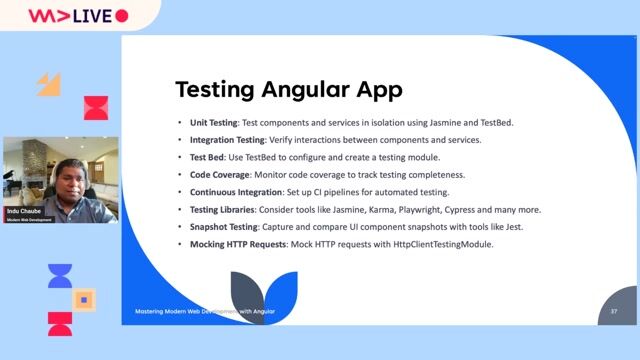
06:15 MIN
Testing, debugging, and final Q&A session
Angular Unleashed: Mastering Modern Web Development with Angular

00:36 MIN
Introducing the Angular.love developer community
Community Interview: angular.love

02:56 MIN
An overview of the Angular framework for enterprise development
Differential Loading

11:10 MIN
A brief history of JavaScript frameworks
How to Stop Choosing JavaScript Frameworks and Start Living
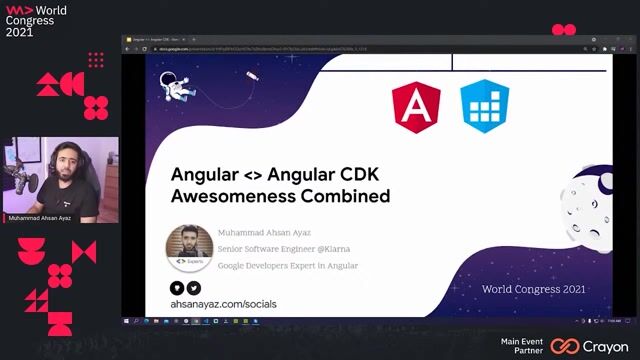
04:30 MIN
Understanding Angular as a complete development platform
Angular <> Angular CDK - Awesomeness Combined

07:34 MIN
Key Angular features for building robust applications
Differential Loading
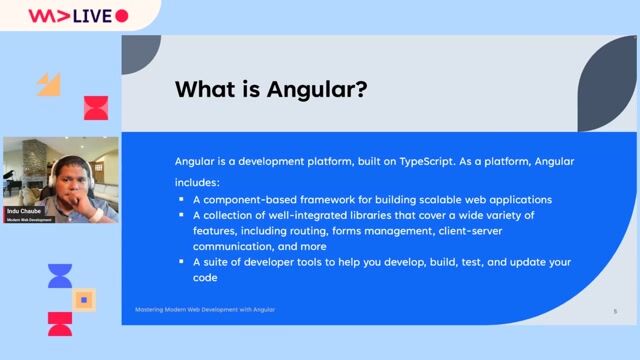
01:16 MIN
Understanding the core concepts of the Angular framework
Angular Unleashed: Mastering Modern Web Development with Angular
Featured Partners
Related Videos
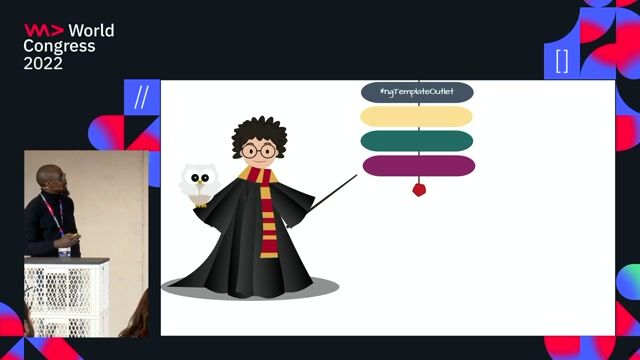 29:11
29:11Angular Magical directives
Valentine Awe
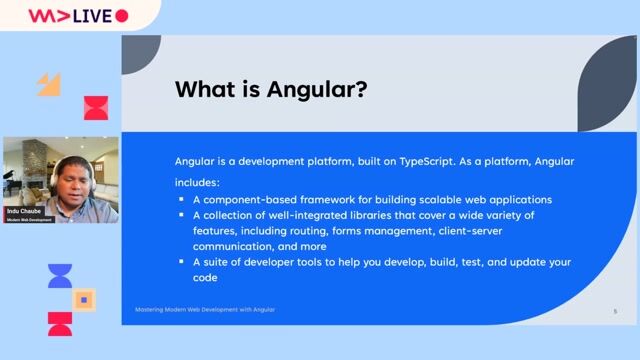 58:56
58:56Angular Unleashed: Mastering Modern Web Development with Angular
Indu Chaube
 36:22
36:22Angular Features You Should be Using
Sani Yusuf
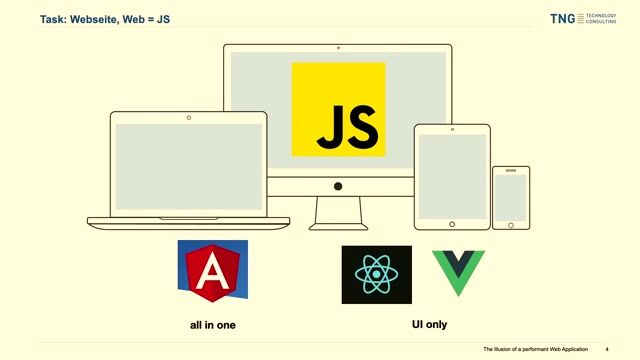 28:56
28:56The Illusion of a Performant Web Application
Cathrin Möller
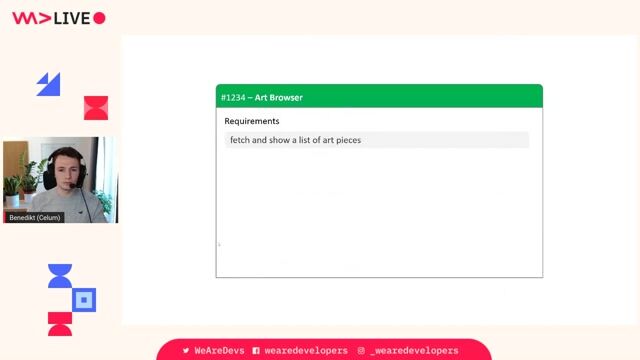 50:28
50:28Angular tips/tricks you can use from tomorrow on
Benedikt Starzengruber
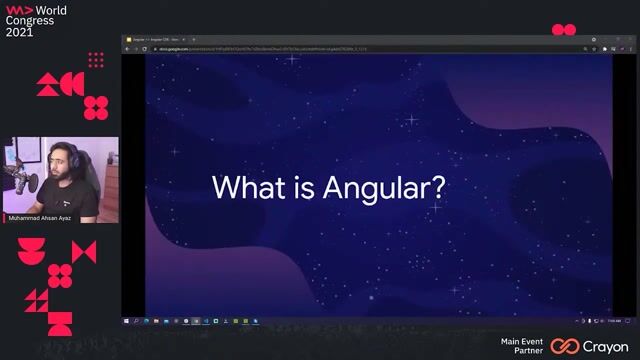 35:49
35:49Angular <> Angular CDK - Awesomeness Combined
Muhammad Ahsan Ayaz
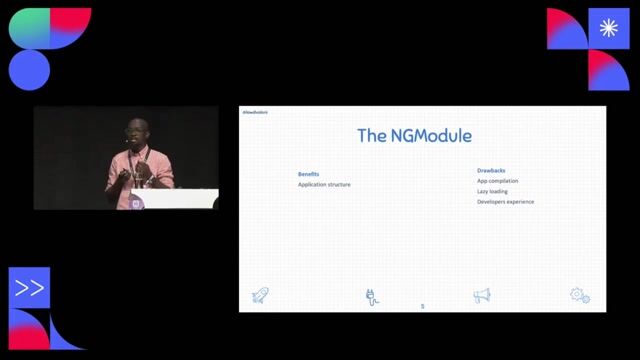 28:11
28:11Stand alone components in Angular
Valentine Awe
 39:55
39:55Differential Loading
Sani Yusuf
Related Articles
View all articles



From learning to earning
Jobs that call for the skills explored in this talk.




engelhardt softwareentwicklung
Ditzingen, Germany
API
GIT
Angular
TypeScript

UDG Ludwigsburg
Barcelona, Spain
CSS
GIT
REST
Angular
TypeScript
+1

European Dynamics
Brussels, Belgium
Intermediate
XML
Java
JIRA
NoSQL
Tomcat
+7


